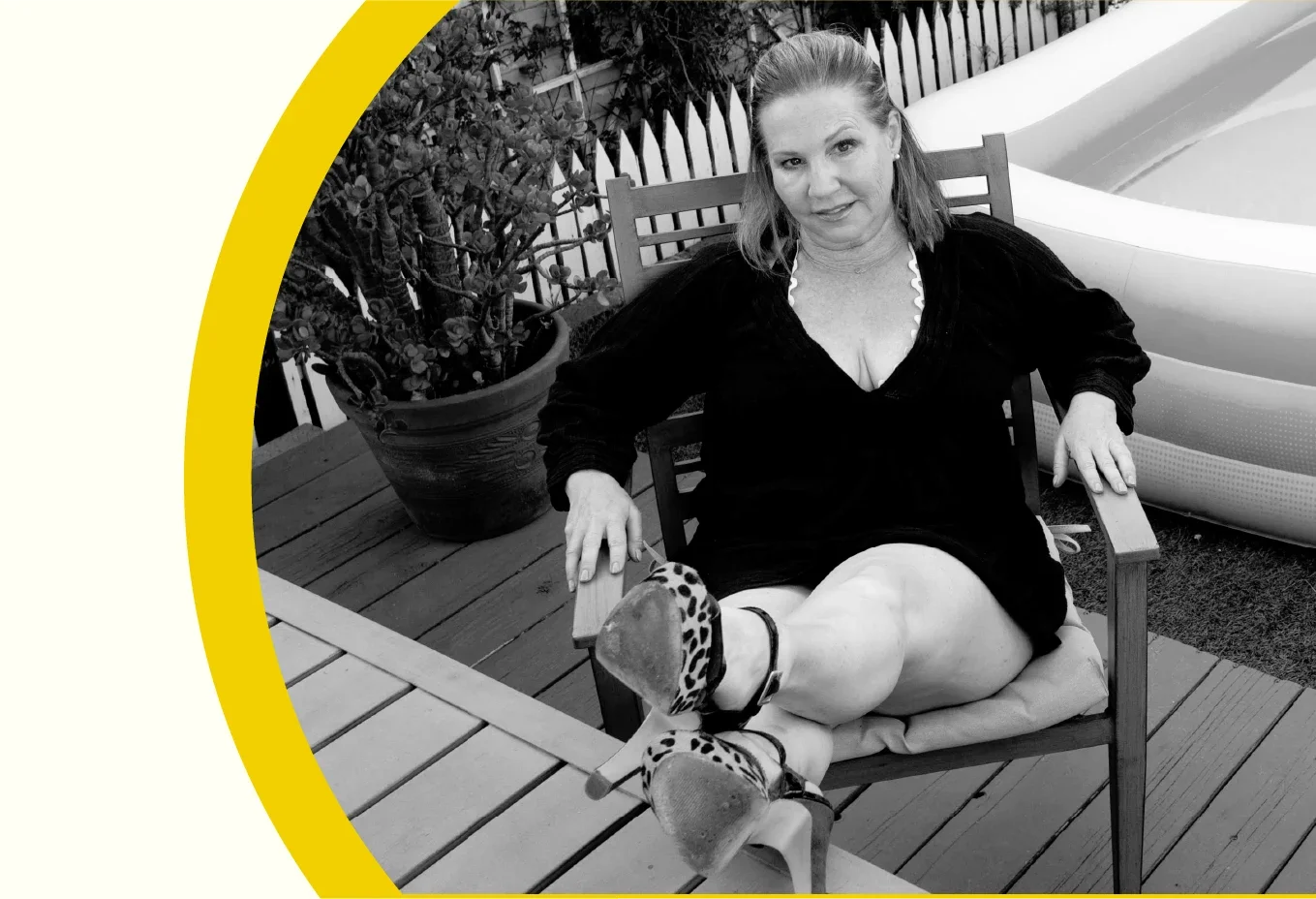Key takeaways:
A bipolar disorder diagnosis turned Los Angeles comedian Lisa Sundstedt’s life upside down.
She has learned how to cope with her condition by educating herself.
She wishes other people knew more about what it’s like to live with bipolar disorder.
Lisa Sundstedt is a 55-year-old comedian and comedy teacher in Los Angeles. When she went to a gynecologist appointment in 1996 for severe PMS, she had no idea it would change her life.
It was the start of her journey dealing with a mental illness she wishes people knew more about.
When she went to the doctor to get help for her premenstrual symptoms, her provider prescribed the antidepressant Paxil. But within 2 weeks, Lisa spun into a manic episode that lasted about 3 months. Her doctor diagnosed her with bipolar I disorder, which used to be known as “manic depression.”
Since her initial diagnosis, Lisa has made many adjustments. Some changes were with different medications, and others were with networks of support.


Here are 6 things she wishes people knew about bipolar disorder.
1. It’s important to know your family history
When Lisa got an antidepressant for her PMS symptoms, her provider didn’t ask about her family history. If they would have had that discussion, she would have told her doctor about her youngest brother, who had been diagnosed with bipolar I disorder years earlier.
Since there is a greater chance of having bipolar disorder if a parent or sibling does, Lisa says it’s important to know your own history. She says it's also essential to let your provider know about your family history.
2. There is more than one type of bipolar disorder
A lot of people put bipolar disorder under one umbrella term. But there are different types of bipolar disorder. Lisa says it is important to know the differences so you can find the best ways to cope.
Her diagnosis — bipolar I disorder — involves periods of severe mood episodes, from mania to depression.
“It was such a severe depression that no medication could bring me out of it,” she says.
Other forms of bipolar disorder are bipolar II disorder and cyclothymia, which have different symptoms and cycles.
“There’s such a misconception about bipolar disorder,” Lisa says. “You’ll hear that term tossed around very casually and flippantly by people.”
People know what depression looks like, she says, but she wants people to recognize that mania may not look like what they think.
3. Your words have weight
Lisa says she’s fortunate to have found a community of people who support her.
But even as a comedian, it’s hard for her to laugh off some of the things she hears people say about having bipolar disorder.
“I have a joke in my act where I say, ‘I overheard this girl talking, and she said, ‘Oh my God, my boss is so bipolar. She keeps changing her mind about what she wants for lunch.’ And I say, ‘That’s inaccurate and slightly offensive,’” Lisa says.
“Even Katy Perry has it in one of her songs,” Lisa says of the pop singer’s “Hot N Cold” lyrics: “You’re yes, then you’re no. / You’re in, then you’re out. / You’re up, then you’re down. / Someone call the doctor. / Got a case of a love bipolar.”
To Lisa, those words have weight. She wants people to better understand what it means to have a mental health condition like hers.
4. It’s hard to accept help when you’re experiencing mania
When Lisa had her first major manic episode, she wrote and starred in a one-woman musical called “Make Room for Lisa.” She wrote it in 2 weeks.
“My mom came to see the show, and she noticed I was drinking very heavily after the show,” Lisa recalls. “She said, ‘I want you to go back to the doctor, because I think there’s something wrong.’”
But Lisa was defensive. She didn’t consider herself out of touch. She was the most productive she had ever been.
“You cannot reach somebody when they are manic,” she says. “You cannot reason with them. They will just get angry, and they will get irritable, and they’ll yell at you and probably cut you out.”
Lisa’s family recognized that she was making impulsive decisions. She had broken up with her boyfriend, bought a new wardrobe, and was gambling a lot.
“Everybody in my life could recognize something was wrong,” she says. “But I felt on top of the world.”
It took her longer to admit to herself that she needed help.
5. There is power in education
Lisa says there’s power in learning about bipolar disorders, and she encourages people to read up on mental illness education.
She says it’s important to know what your triggers are. She’s found strength in 12-step programs that help with her drinking and gambling. She also sees a psychiatrist and takes her medicines regularly as well as keeps an eye on her stress levels.
6. You don’t have to go through this journey alone
Lisa says it is important to have support systems in place.
“If I’m starting to feel depressed, I know it immediately and I will tell somebody,” she says.
Sometimes, it’s harder for her to recognize when she is having a manic episode. But she says her family has learned to pick up on if things seem off. And they’ve encouraged her to talk to her psychiatrist as well.
She also finds comfort in talking to people who also have bipolar disorder.
“Being around other people who are dealing with the same thing, you don’t feel so alone, and you’re able to talk about it,” she says.
Her diagnosis doesn’t define her
Today, Lisa continues to take daily steps to manage her bipolar disorder.
She journals about her experience. She makes sure she gets enough sleep. She also takes a mood stabilizer and makes the most of support groups.
Bipolar disorder “doesn’t define me,” she says.
“Bipolar people are artistic, creative, talented, and super smart,” she says. “They are gifted in a lot of ways but have a cross to bear.”

Why trust our experts?

















